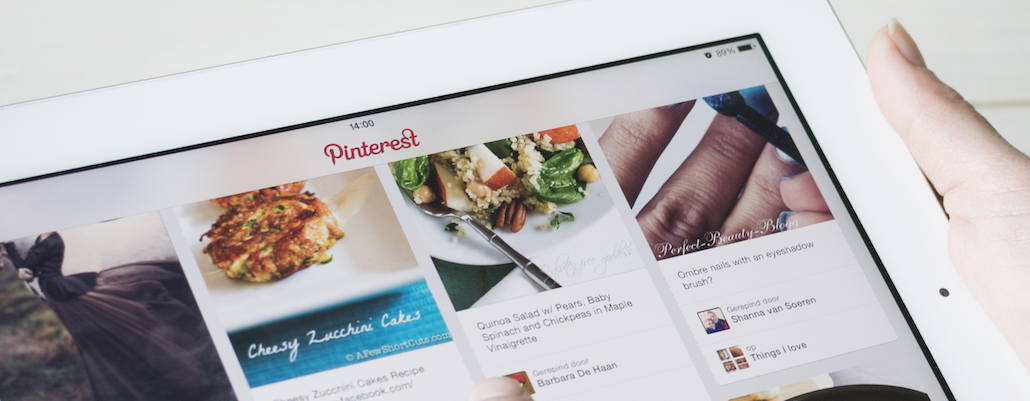Secure your place at the Digiday Media Buying Summit in Nashville, March 2-4

Pinterest is bringing true video ads to its platform, following rival social media sites into this lucrative part of the digital ad industry.
According to agencies briefed, the platform plans to roll out a video ad unit, but it was unclear what exact format it would embrace. “Just like the evolution of other platforms, it makes sense for Pinterest to accommodate video,” said an ad exec who was told of the plans.
Facebook and Twitter built autoplay video ads that start on mute. Advertisers said Pinterest would build an ad that is native to its platform, so brands could promote video pins that fit the experience — like how-to videos and cooking tutorials, sources said.
For the platform to be successful with promoted video, though, it first needs to encourage more video viewing, in general, according to Dave Surgan, strategy director at R/GA. Right now, video watching is not the core activity for Pinterest users, who mostly post images and other content like recipes — the digital Pins often reflect their tastes, styles and planned purchases.
“We expect Pinterest to create better experiences with video, and the ad products will follow,” Surgan said. “You have to make sure the behavior is there, otherwise there’s nothing to sell to.”
That was Facebook’s video strategy: First it encouraged more organic video, and it introduced promoted videos once the viewing habits were ingrained. There are now 8 billion views a day. R/GA works mostly with retail clients on Pinterest, and that sector is a crucial part of the company’s growth prospects. And retail happens to be the No. 1 spender on digital video ads in the U.S., $1.6 billion last year, according to eMarketer.
Surgan imagines there is an opportunity to make video a bigger part of the Pinterest experience. “You could get a deeper experience inside pins, and could include GIFs and video,” he said.
Pinterest declined to comment, and it was unknown when video ads would launch.
Last year, Pinterest introduced the Cinematic Pins, its first moving-image ad unit. They’re similar to GIFs but with a stylish functionality that only sets them in motion if the user scrolls up and down on the screen. The ad format was seen as artistic and innovative, and major brands like Target and Wendy’s tested them, but it’s unclear how well they performed.
“Video does interest us more,” said Doug Neil, evp of digital marketing at NBCUniversal. The media and entertainment company is considering Pinterest promotion for upcoming movies.
Pinterest has been developing its advertising technology, too, so it could offer the same range of services as competitors like Facebook, Twitter and Instagram. The company has an ad software platform — known as an API — which lets third parties buy promoted pins for clients, using data to target ads and measure campaign performance.
Pinterest also introduced a buy button into ads last year as a way to round out its slate of products. It has been pitching advertisers on the idea that there are flexible marketing options starting with Cinematic Pins for big branding campaigns and ending with e-commerce ads that lock down the sale.
More video ad options would make sense for Pinterest, according to Sean O’Neal, president of Adaptly, which helps brands buy ads on the platform.
“It seems like a great opportunity. Pinterest is one of the most visual platforms on the Web,” O’Neal said.
More in Media

Media Briefing: Turning scraped content into paid assets — Amazon and Microsoft build AI marketplaces
Amazon plans an AI content marketplace to join Microsoft’s efforts and pay publishers — but it relies on AI com stop scraping for free.

Overheard at the Digiday AI Marketing Strategies event
Marketers, brands, and tech companies chat in-person at Digiday’s AI Marketing Strategies event about internal friction, how best to use AI tools, and more.

Digiday+ Research: Dow Jones, Business Insider and other publishers on AI-driven search
This report explores how publishers are navigating search as AI reshapes how people access information and how publishers monetize content.





